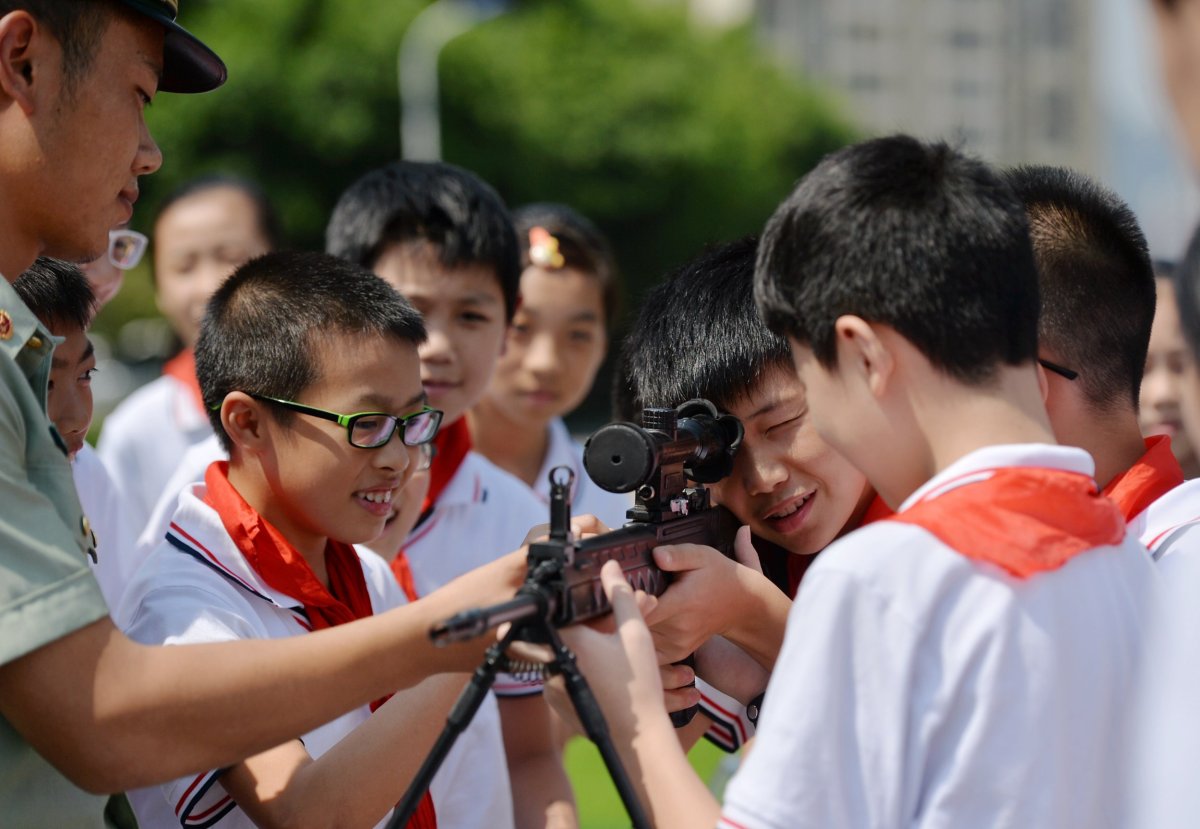China is tapping up its brightest students for recruitment into the country's smart weapons industry, as Beijing pushes to become a world leader in military research connected to artificial intelligence (AI).
The Beijing Institute of Technology (BIT) is spearheading the AI drive, having recruited 27 boys and girls aged 18 and under for a four-year program to develop the country's most cutting-edge weapons research, the South China Morning Post reported.
A message on the BIT website explained that the new recruits would embark on an "experimental program for intelligent weapons systems." It said the 27 students had been selected from more than 5,000 candidates. The program was launched at the end of October at the headquarters of Norinco, one of China's biggest defense contractors.
The field of AI weaponry is still in its infancy. Applications of AI range from the very small, such as tiny robots that can swim through the bloodstream, to very large, like guidance systems for combat aircraft and self-learning chips for nuclear submarines.
Proponents argue that military AI could take huge numbers of humans out of harm's way and make war less bloody. But critics suggest that allowing machines to make decisions in lethal situations presents an existential threat to society.
Regardless, world leaders in weapons research are jostling to build the infrastructure and attract the personnel required to be at the forefront of the field's development.
In the U.S., for example, the Defense Advanced Research Projects Agency is well known for its futuristic research projects. However, these programs operate in secret and involve established and experienced scientists, rather than recruiting young students and instilling a pure focus on AI weaponry.

Each of the 17 students will be mentored by two senior weapons scientists throughout their course, the Post said, citing the program brochure. One of the experts will be from an academic background while the other will have experience working in the defense industry.
The students will choose a specialty field after completing the first semester of the course. Options include mechanical engineering, electronics or simply overall weapon design. Each will then be posted to a suitable defense laboratory to build on their education with hands-on experience.
When the four-year stint is over, students are expected to obtain Ph.D.s and enter the defense industry as leaders in the AI weapons arena, BIT said.
One BIT professor involved in the selection process told the Post, "These kids are all exceptionally bright, but being bright is not enough." The academic asked not to be named, given the sensitive nature of his work, but suggested BIT was on the lookout for creative thinking, persistence and a "willingness to fight."
"A passion for developing new weapons is a must," he added, "and they must also be patriots."
Eleonore Pauwels, a fellow in emerging cybertechnologies at United Nations University's Centre for Policy Research, noted that BIT's program is the first in the world to "aggressively and strategically encourage the next generation to think, design and deploy AI for military research and use."
She added, "This concept is both extremely powerful and troubling."
Asked for a comment on its course, BIT told the Post that it was well aware of the challenges posed by AI weapon development and that the program was part of its bid to advance AI to serve its economic, social development, scientific and technological progress.
In April, China submitted a paper to the United Nations detailing its position on the use of AI weaponry. "Development and use of lethal autonomous weapons systems would reduce the threshold of war, and the cost of warfare on the part of the user countries," the paper said.
"This would make it easier and more frequent for wars to break out," China warned, urging further debate on the topic. "Until such discussions have been had, there should not be any preset premises or prejudged outcome which may impede the development of AI technology," the document concluded.
Uncommon Knowledge
Newsweek is committed to challenging conventional wisdom and finding connections in the search for common ground.
Newsweek is committed to challenging conventional wisdom and finding connections in the search for common ground.
About the writer
David Brennan is Newsweek's Diplomatic Correspondent covering world politics and conflicts from London with a focus on NATO, the European ... Read more
To read how Newsweek uses AI as a newsroom tool, Click here.








